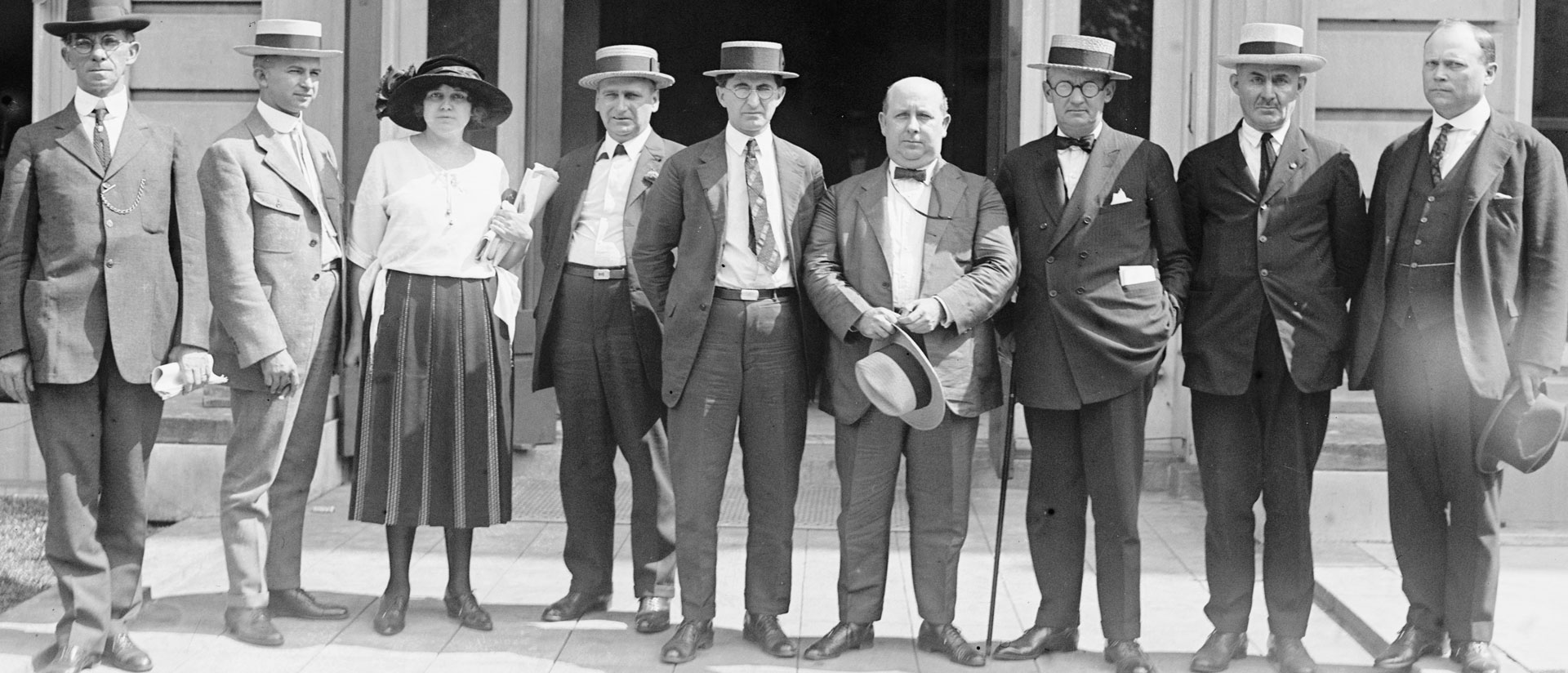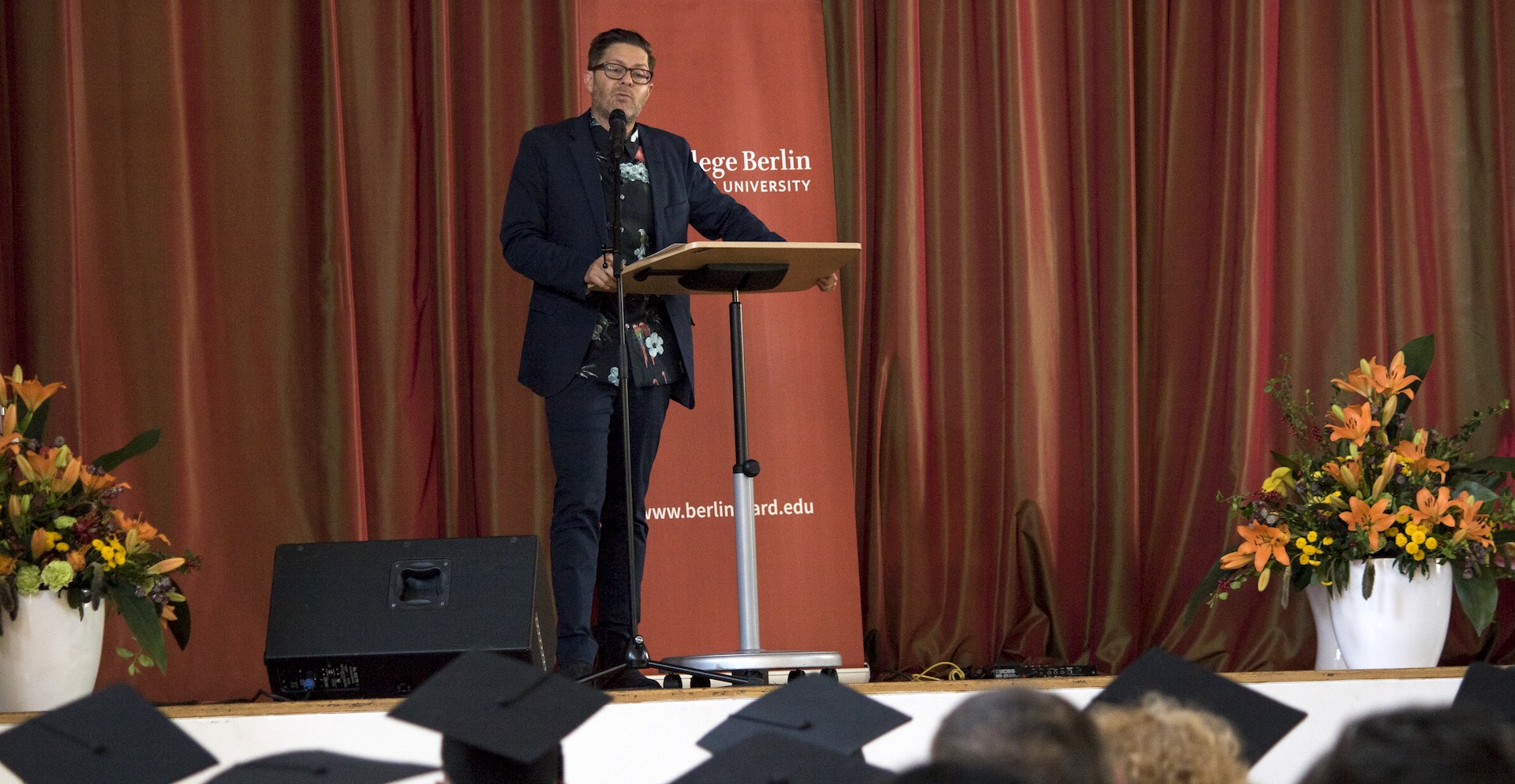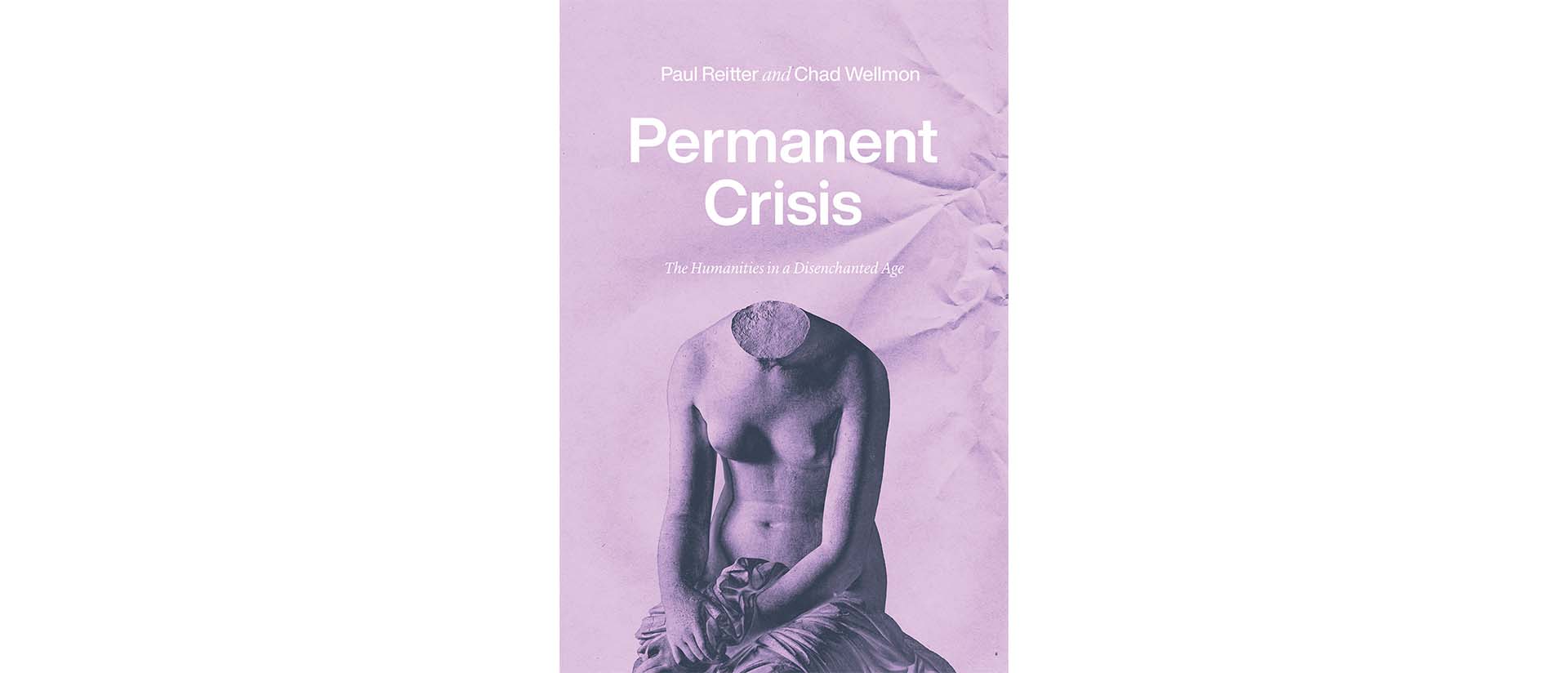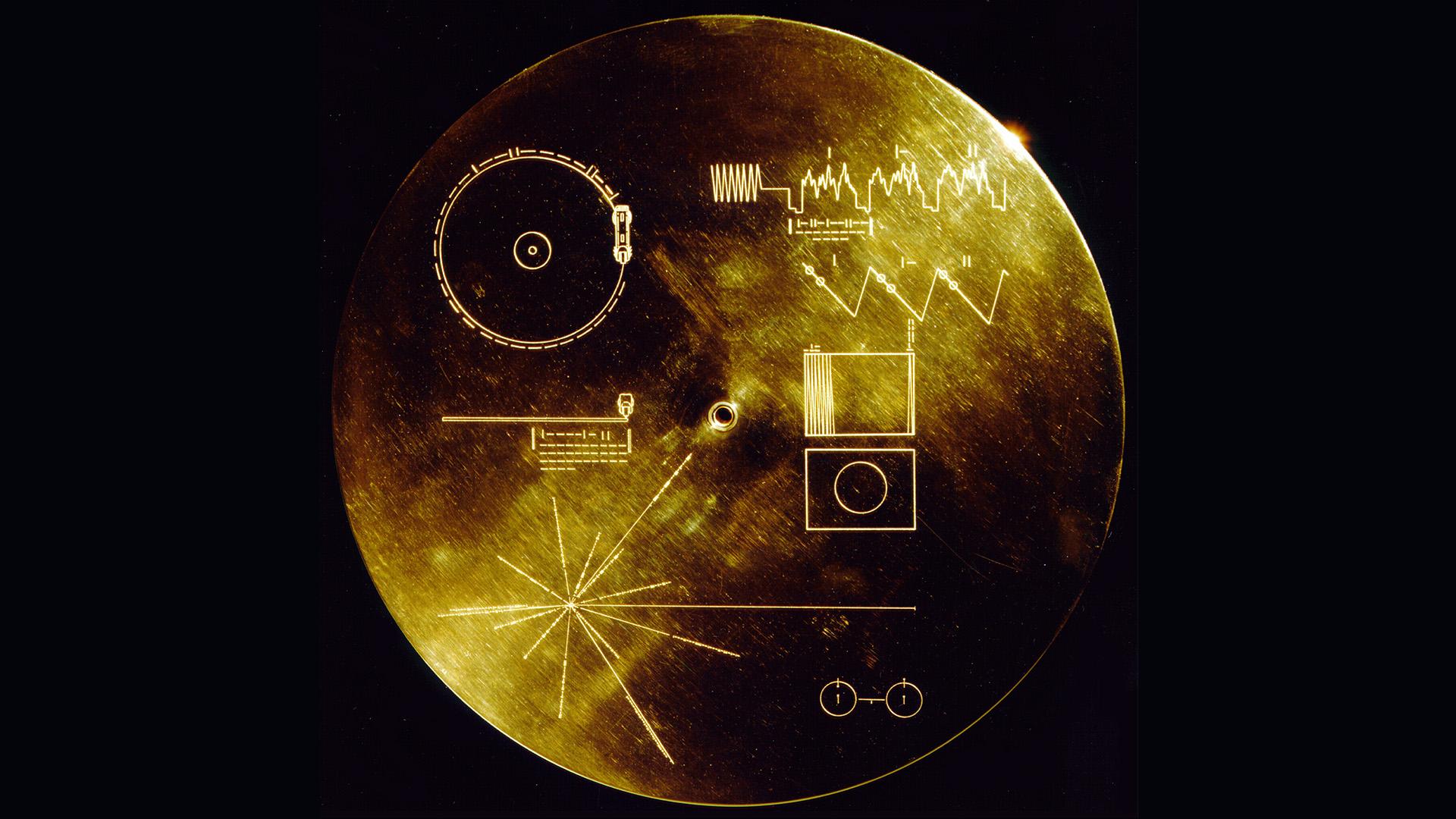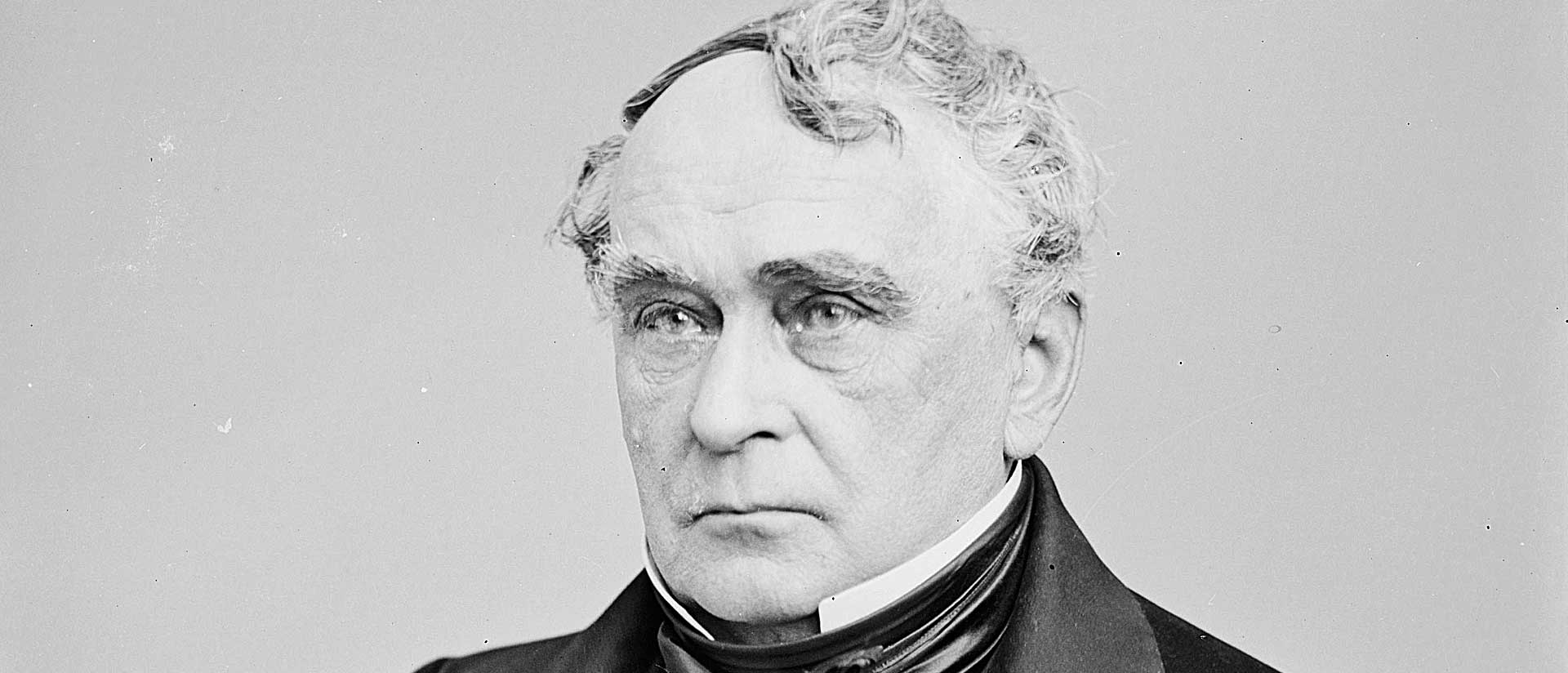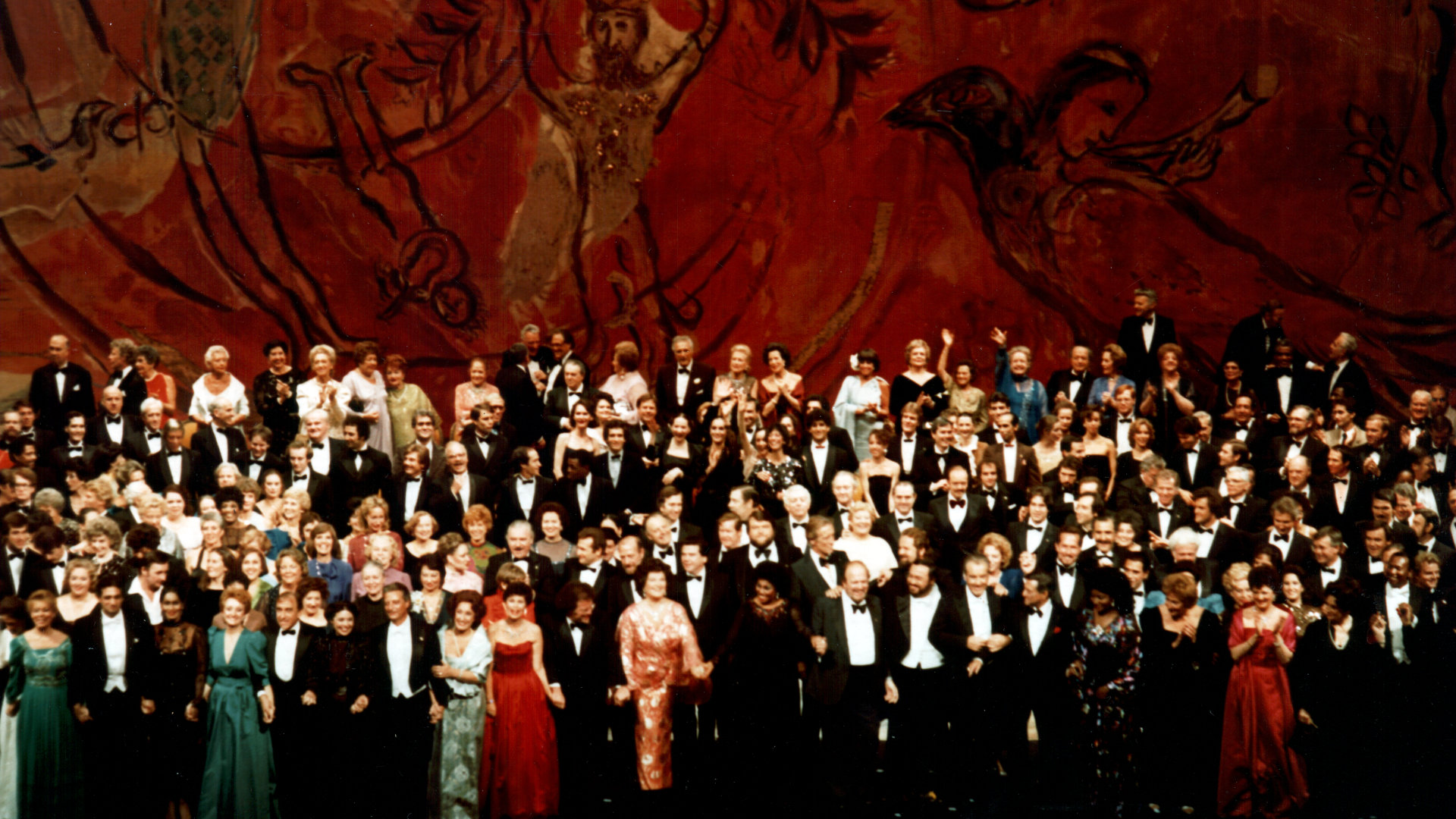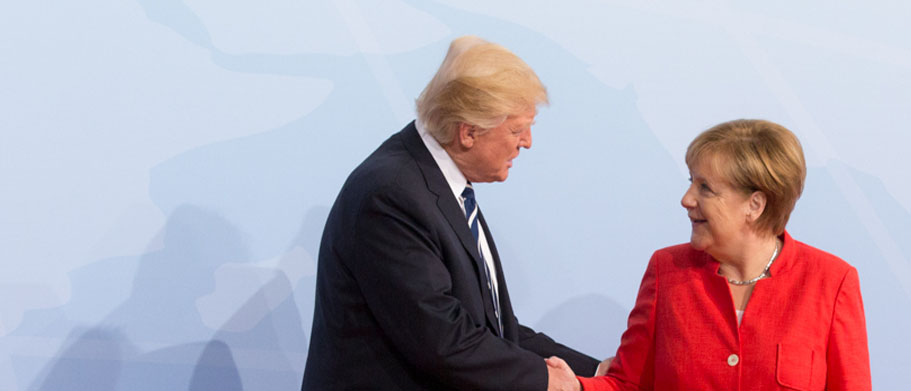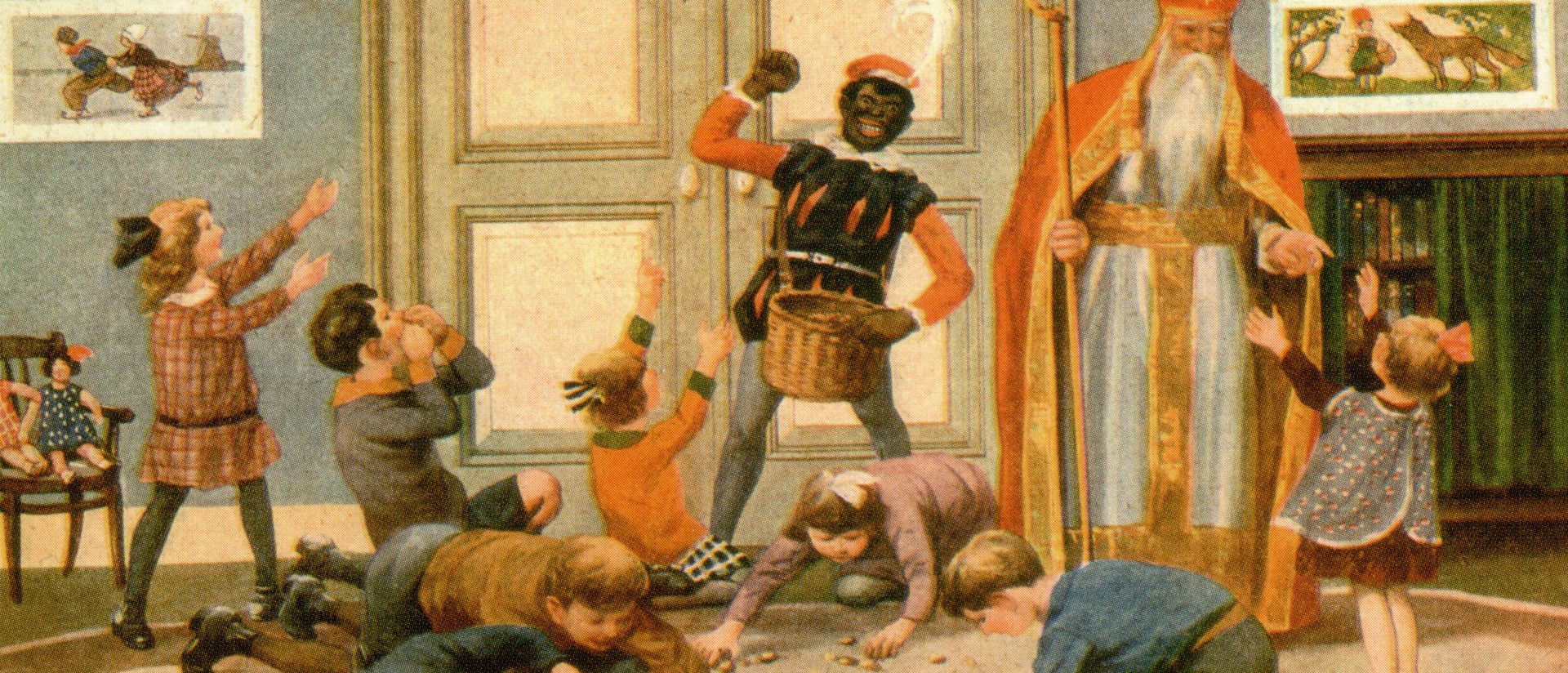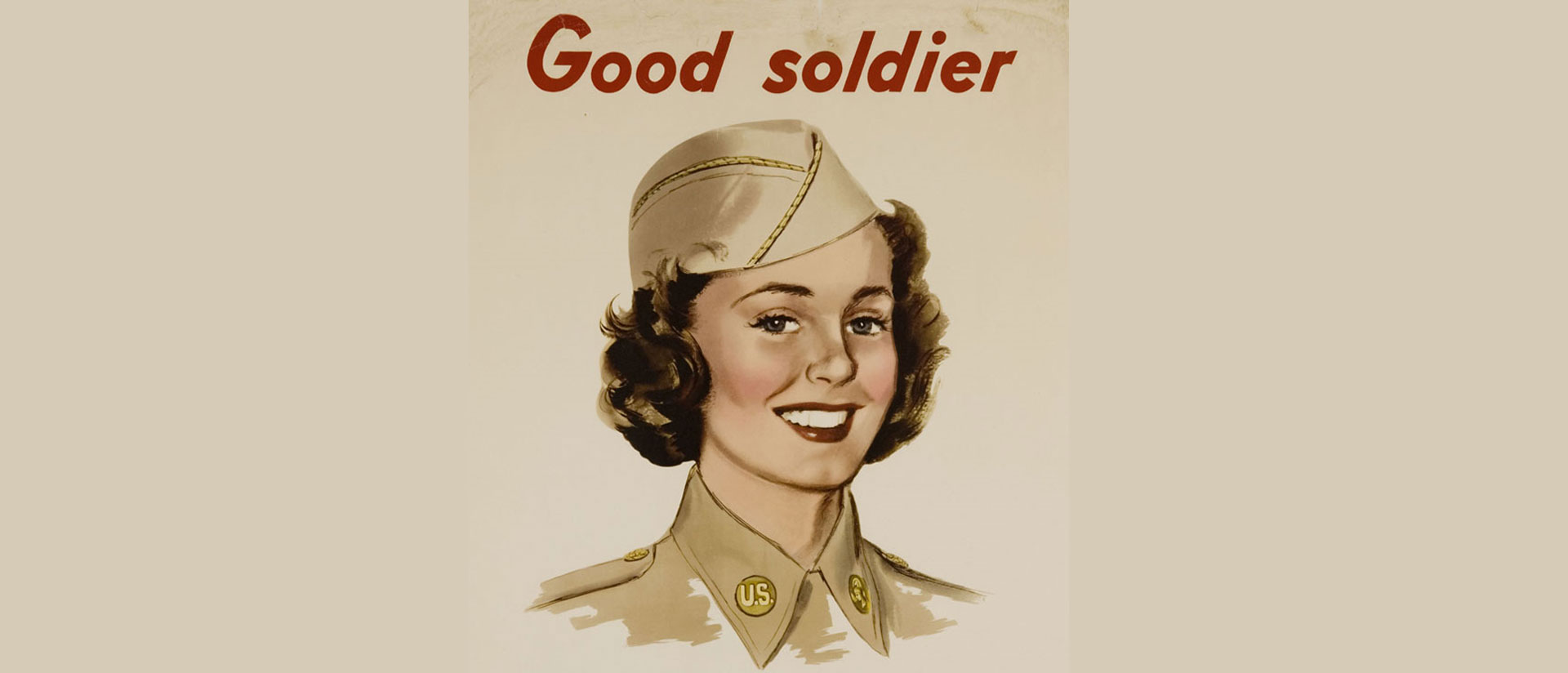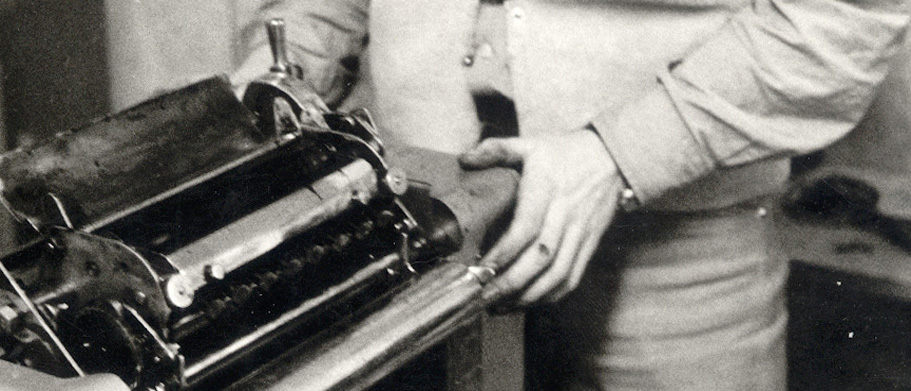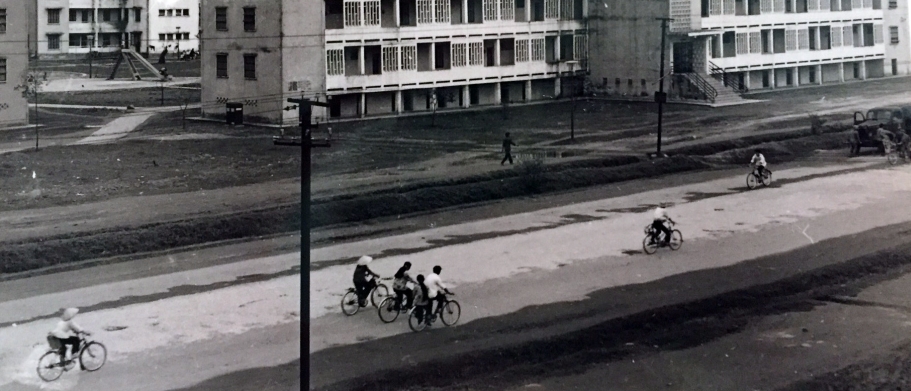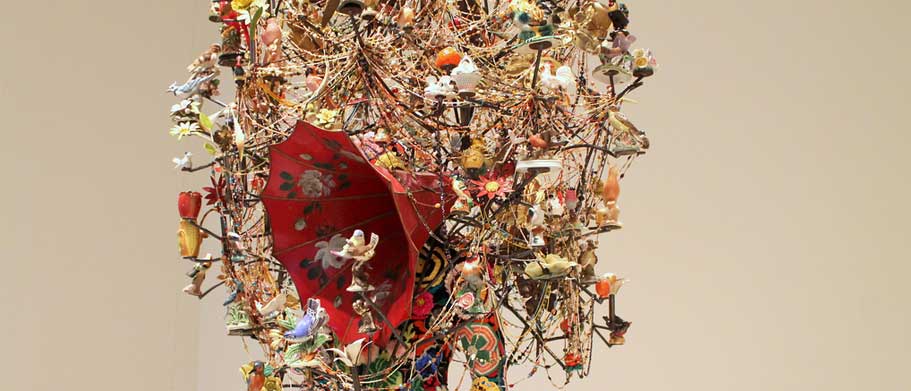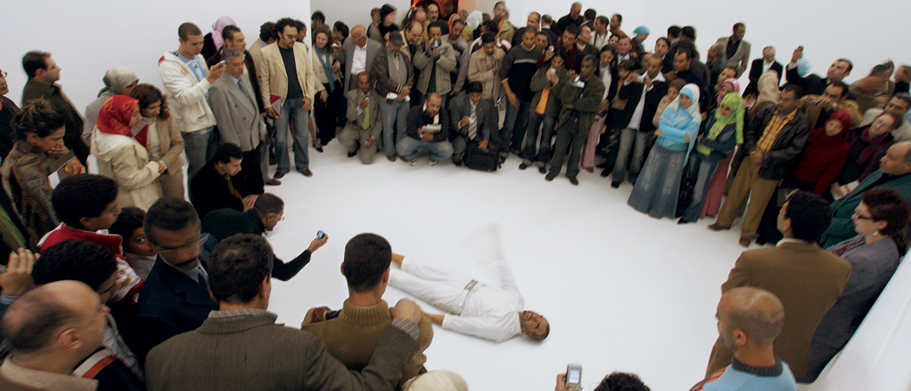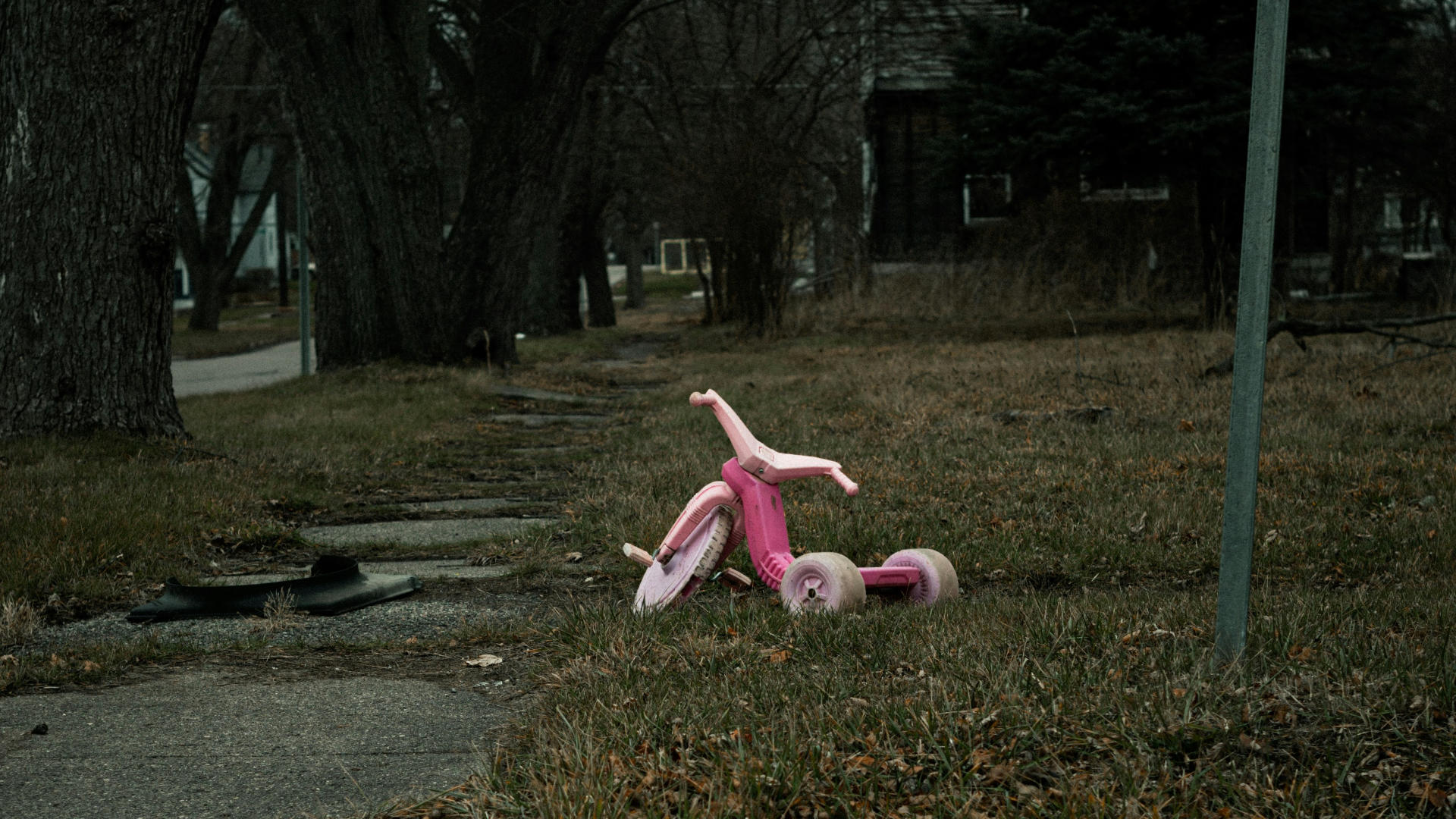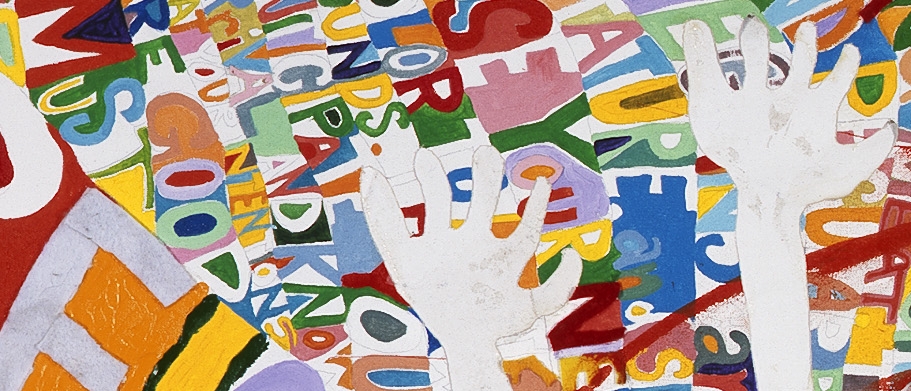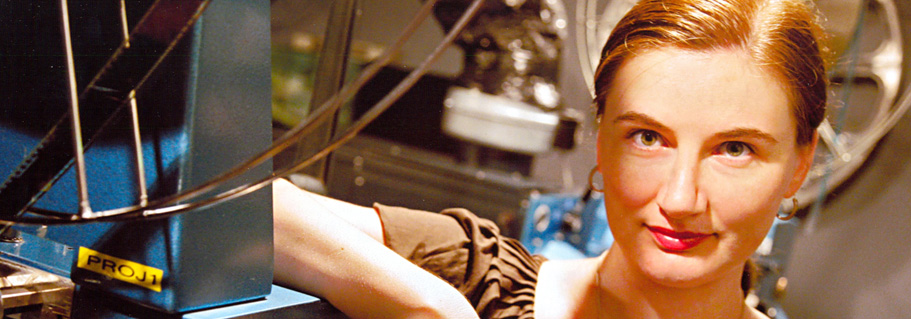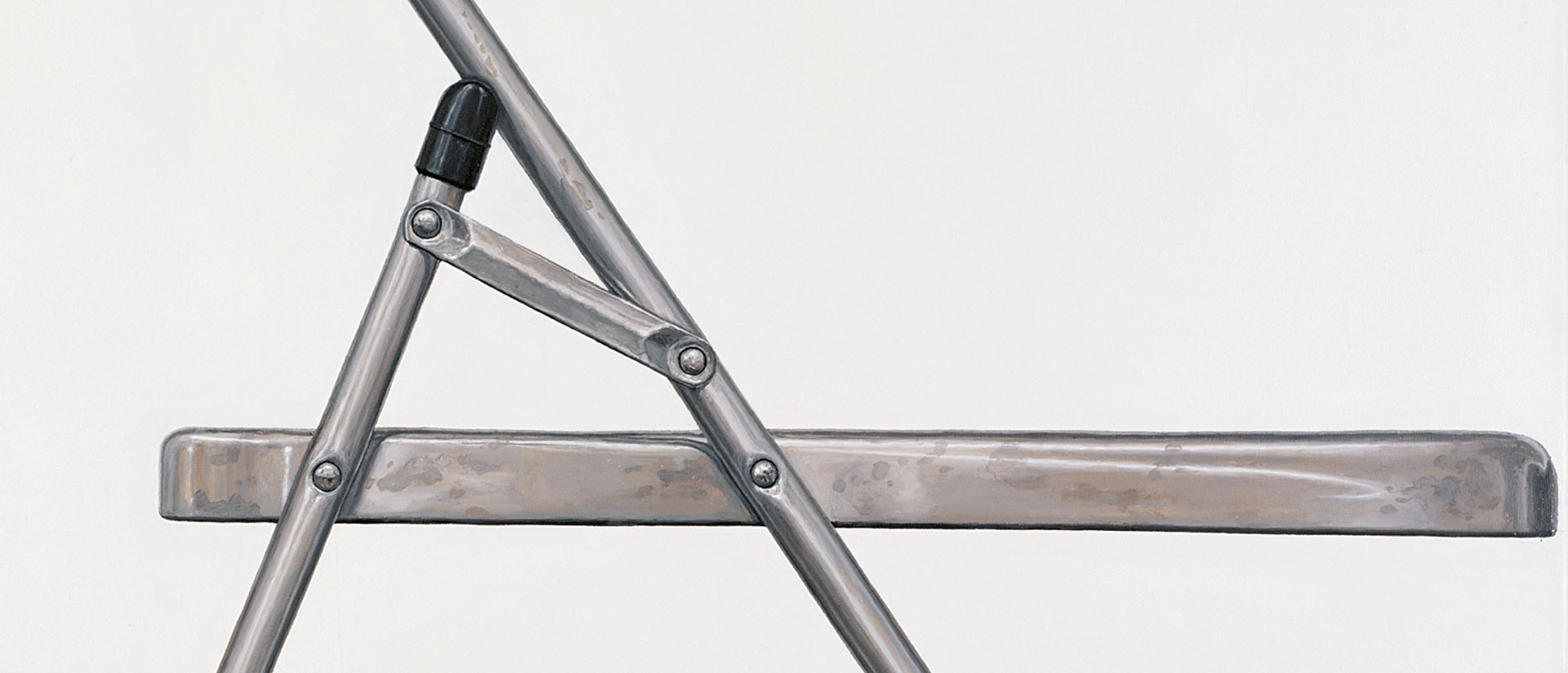
Listening through the Iron Curtain
An intimate history of musical exchange
By Peter Schmelz
During the tensest days of the Cold War, from 1961-1968, a German musicologist and Südwestfunk radio journalist named Fred Prieberg corresponded actively with the Ukrainian conductor Igor Blazhkov. The two men had found common cause in their interest in the newest, most difficult of contemporary music, from serialism to aleatory devices and everything in between. Prieberg, based in Baden-Baden, had caught wind of young composers experimenting with these avant-garde techniques in the Soviet Union, and had heard that Blazhkov was the man to contact about them.
Blazhkov was certainly a prime mover and shaker in the unofficial musical scene in Kiev at the time—indeed in the USSR as a whole. Possessed of seemingly boundless curiosity and energy, he maintained ties with the leading figures in Moscow, Leningrad, and Tallinn, and he corresponded with towering figures of contemporary music in Europe and America, among them Igor Stravinsky and the Austrian-born Ernst Krenek. Blazhkov held particularly high hopes for his friend the composer Valentin Silvestrov, who was just then beginning to compose using Arnold Schoenberg’s twelve-tone system, which he and his fellow composers had gleaned from books they had received from further West—primarily from West Germany but also from Poland, thanks to the Warsaw Autumn festival. Blazhkov and Prieberg wrote often about Silvestrov, and Prieberg did all he could to arrange performances and publications of Silvestrov’s music, often on West German radio stations.
The exchanges between Blazhkov and Prieberg stand out from other moments of cultural exchange during the Cold War. Evidence suggests that officials in Moscow were aware of the contact between the two men, but often it seems that Prieberg and Blazhkov’s activities flew under the radar. They frequently used code, referring to Silvestrov as “your friend, the young composer,” but just as often they did not. Their correspondence shows the assumptions on both sides about the power of music and the messages it could and did convey during the Cold War. And in so doing, their unique exchange illuminates what I call an “intimate history,” an unofficial personal connection encouraged by the peculiarities of life during the Cold War, a conflict played out as often in the imagination as in official political interactions.
We join Prieberg, Blazhkov, and their friends in August 1963, when Prieberg wrote to Russian pianist Maria Yudina about Silvestrov. Prieberg observed, in a letter, “Gradually here they are beginning to be interested in the music of Valentin [Silvestrov]; it is purely musical interest, I try to impede all the rest.” Prieberg’s “the rest” implied the dangers of excessive foreign interest in Soviet artists, which had been clear since Boris Pasternak was awarded—and ultimately forced by the Soviet leadership to decline—the Nobel Prize for literature in 1958. The interest of Western listeners was never purely musical.
But as Silvestrov and other young Soviet composers were heard more widely outside the USSR, they also encountered, for the first time, criticism of their compositions from non-Soviet sources, much of it betraying the larger sociopolitical and aesthetic assumptions lurking behind the ostensibly “purely musical interest.” More specifically, the new music was consistently heard in relation to the Cold War. Representative is the letter of September 4, 1964, from Prieberg to Blazhkov, which reports on recent and upcoming performances of Silvestrov’s music, notably at the Berliner Festwochen, where “no undue publicity is made, and for the program book I have written but a few sentences in the form of a short biography stating quite optimistically that it is possible to compose like this in the USSR and that ‘Western influence’ means influence from Warsaw and Prague . . . (I hope this will be true in the long run).” The bulk of this letter concerned the judgment of someone who loomed large in the German debate over new music, Theodor Adorno, whose influential Jargon of Authenticity was published that year. Relaying his critique of Silvestrov’s music, Prieberg continues,
Adorno wrote me about his piano pieces. He thinks that Valentin is extremely gifted yet he feels that it would be a pity if Valentin would repeat for himself the musical development after Schoenberg. This is exactly what makes me uneasy. He should by no means imitate the idiotic fads of certain of our young composers, e.g., in regard to “aleatoric” techniques. Musical creation has certain limits. To go beyond these is artistically irresponsible and, in his situation, even unwise as it might provoke rage in Mr. Tikhon [i.e. Khrennikov, the head of the Union of Soviet Composers].
Following this capsule summary of Adorno’s 1955 essay “The Aging of the New Music,” Prieberg launched into his own evaluation of Soviet musical politics. Here, he further reflected his own preconceptions about his role as musical “importer” of advanced Soviet music:
For the time being, [Silvestrov’s] pieces and their quality have provided me with the reasonable foundation to tell the public: the USSR has composers who can be superior to ours in the field of contemporary music, and surely this is what Tikhon [Khrennikov] would like to hear. Perhaps this is the way to induce him to grant “export licenses” for partitions. But how weak is my foundation if Valentin goes to the extreme of composing in the short-lived trend of aleatorics that cannot be justified by any critic. I want him to understand me correctly, and this is a cordial and friendly advice due to my experience with our musical scene.
Prieberg then advised Silvestrov through Blazhkov “to concentrate on the development and intensification of the style of the trio [Silvestrov’s Trio for Flute, Trumpet, and Celesta, 1962], for instance; this seems to be a good point of departure.” (Not coincidentally, Silvestrov had dedicated the trio to Prieberg.) Prieberg then warned, “No imitation, please; at his musical standard there are no great models for him to be found here. For Valentin, there is a personal way of development.” The letter conveyed Prieberg’s assumptions in capsule form: about musical modernism, history, innovation, audience expectations, Cold War cultural competition, and authentic “Russian” or “Ukrainian” music. Blazhkov passed along Prieberg’s (and Adorno’s) comments to Silvestrov.
Though it is unclear what either Ukrainian musician made of them, the combined responses of Prieberg and Adorno trapped the young Soviet between two competing models of artistic production, West and East. Criticized from all sides, Silvestrov apparently adopted the attitude recommended by fellow Russian composer Edison Denisov (named by his radio-physicist father after the great American inventor), who wrote in a 1965 letter to Blazhkov of the reviews of his own Paris premieres: “All of them are of a very low professional standard (although also positive-condescending). Tell Valya [Silvestrov] not to pay them any mind.” In early September 1966, Denisov went further, writing to Blazhkov, “I don’t trust Prieberg very much. He writes about our music in a way that plays right into Khrennikov’s hands.” Apparently Silvestrov heeded the advice: his compositions from the mid-1960s to the early 1970s made ample use of the “aleatorics” that Prieberg so severely scorned.
Undeterred, Prieberg reported still seeking a publisher for Silvestrov’s music in his January 8, 1965, letter to Blazhkov: “As for publishing Valentin’s works I am in contact with a publisher; if I could be sure to get more and all of his compositions, I myself would found a publishing agency for young music from USSR . . . a nice idea, isn’t it? But, of course I would have to have also works by the other composers, so that expenses are not higher than the reward.” (Market forces consistently tempered Prieberg’s ambitions.) Along with the letter, Prieberg included a tape of the “Bremen performance” of Silvestrov’s music (presumably Five Pieces for Piano) by Maria Bergmann, a staff pianist for Südwestfunk radio. Blazhkov replied, in his letter of February 28, 1965: “We listened [to] the tape with a great joy. And Valentin was glad as a child. It is an enormous stimulus for his creative work.”
Through Prieberg and Blazhkov, Silvestrov was able to gain something that he and many other young Soviet composers lobbied for whenever they could in the 1960s: performances. In fact, the “first public performance of Silvestrov’s works in the USSR” came only on December 8, 1965, when Blazhkov conducted the premiere of Spectrums (Spektry, 1965) for orchestra. The young Soviet composers wanted to hear their music in order to continue developing artistically, but because of their perceived stylistic indiscretions they had few opportunities. As a result, they stuck to less noticeable forms—for piano or smaller ensembles, precisely those groupings that Prieberg and Western publishers found so unmarketable. For on January 25, 1963, Prieberg had noted to Blazhkov that he was shopping Silvestrov’s scores around, but that the publisher “Dr. [Hermann] Moeck seemed to me more interested in orchestral pieces which have a better market here.”
Yet perhaps because of this prodding from Prieberg, mediated by Blazhkov, Silvestrov began writing larger compositions in the second half of the 1960s. One of these, his gigantic Symphony no. 3, Eschatophony, was awarded a Koussevitzky Prize in 1967 and was performed in Darmstadt the following year; his Hymn, for orchestra (1967), won second prize at the International Gaudeamus Composers’ Competition in 1970. Eschatophony had to wait another eight years for a performance in the Soviet Union, on October 2, 1976, in Kiev.
Prieberg pushed the apolitical message of Soviet music in West Germany, but in the USSR, Blazhkov’s promotion of Silvestrov was not without political pushback. In 1963, Blazhkov and his wife, Galina Mokreeva, had been forced out of their positions in Kiev. Blazhkov fortunately found employment in Leningrad as an assistant conductor of the Leningrad Philharmonic, under Yevgeny Mravinsky. Mokreeva had begun graduate work in music theory at the Leningrad Conservatory, researching a dissertation on Stravinsky. By mid-1965, Blazhkov had become extremely active in his new post in Leningrad, and his correspondence with Prieberg became more sporadic. Although Khrushchev had been forced out of office in 1964, ending the Thaw by some reckonings, Blazhkov was feeling optimistic: he had already had success programming new, unofficial Soviet music, including the landmark premiere of the pioneering unofficial composer Andrey Volkonsky’s important song cycle Laments of Shchaza, in late April 1965.
In his lengthy letter of September 28, 1965, Blazhkov updated Prieberg on the creative and personal lives of his confréres and urged him to adopt a new project: “It seems to me that you must work at new book on young Soviet composers solely.” By the letter of September 10, 1967, Blazhkov apparently had taken on that hitherto uncompleted task himself. In his letter from October 5, 1966, Blazhkov reminded Prieberg of his intent to find publishers for the young Soviets: “Could you renew your negotiations with Dr. Hermann Moeck as well as with the UE [Universal Edition]? I think [Silvestrov’s] The Spectrums, [Denisov’s] The Sun of the Incas [1964], and [Volkonsky’s] The Laments of Shchaza could adorn their business.” Universal Edition published the Laments of Shchaza in 1970, and the Sun of the Incas in 1971; Spectrums was only recently published by Belaieff.
Silvestrov’s Serenade from his Triad (Triada, 1962) appeared in 1968 in the collection New Soviet Piano Music, edited by Rudolf Lück and published in Cologne by Gerig. Upon hearing of Prieberg’s (limited) involvement with the project, Blazhkov urged him (in vain) to cut the works by Reinhold Gliére, Dmitry Kabalevsky, and Georgy Sviridov from the collection: “These pieces are very mediocre and, in addition, they have nothing in common with the title ‘New Soviet Piano Music.’” Blazhkov also asked (again in vain) that the other two movements of Silvestrov’s Triad be included, in addition to Volkonsky’s Musica Stricta and Zahortsev’s Rhythms. Prieberg justified the “several really mediocre pieces” that Blazhkov had noted, demonstrating an awareness of the musical market similar to that in his January 8, 1965, letter: the publisher “had some business reasons, one of them being the idea that the Russian State Publisher should be pleased (for some intended cooperation the nature of which I do not know), the other being the expectation that not all of the buyers are friends of avant-gardistic styles nor able to play complicated music.” For perhaps the first (but not last) time, the young Soviet modernists were stymied by the fickle tastes of the open market. The world was not black and white: what was condemned in the USSR was not necessarily welcomed with open arms in Europe.
What happened next? The year 1968 was a crucial turning point in Eastern Europe and the Soviet Union. The promises of Khrushchev’s Thaw came crashing down with the Soviet invasion of Czechoslovakia. Although the musical chill did not last long—exchanges like Prieberg and Blazhkov’s initiated changes that had become irreversible—Blazhkov suffered severely. In 1968 things turned tragic for him and Mokreeva, in no small part due to their advocacy of new music. He was fired from his post for performing difficult works by difficult composers, Silvestrov among them. Later that year, Mokreeva, feeling increasingly hemmed in and depressed, committed suicide. In the years that followed, Prieberg and Blazhkov gradually lost touch. Prieberg’s idealistic preconceptions about freedom of expression and musical style were counterpoised by Blazhkov’s hopes about foreign publication and performance as well as by naïve official Soviet ideas about acceptable and unacceptable music and the results of criticism, just or not. How else to explain the missteps Soviet officials made with Estonian composer Arvo Pärt and Russian composer Volkonsky? Denunciations that attempted to silence them only drew the eager attention of foreigners such as Prieberg.
But this was the little-mentioned flip side of the “Pasternak effect” that Prieberg cited so frequently. The Iron Curtain had become rather porous by the 1960s, and information, although intermittent, flowed nonetheless. Competing worldviews collided and fed one another as acceptable ensembles, techniques, and styles were heatedly debated. Yet the Cold War and its rhetoric of freedom suffused everything, rising to the forefront in many of Prieberg’s pronouncements, as we have seen. The intimate side of musical exchanges filtered and fused the larger concerns about agency, identity, self, and other that fueled the broader conflict. Private networks of exchange reveal the malleability of seemingly hard and fast distinctions, chief among them those separating political and apolitical, freedom and constraint. Networks like those between Blazhkov and Prieberg uncover hidden contours of the Cold War and inform our understanding of the fluid networks of informal information exchange becoming increasingly, and alarmingly, powerful today.
Peter Schmelz is an associate professor of musicology at Arizona State University. He was a fall 2017 Anna-Maria Kellen Fellow at the American Academy in Berlin.
Image: René Wirths, Stuhl (detail), 2007. Oil on canvas, 135 × 200 cm. Photo: Jochen Littkemann. Courtesy the artist and Galerie Michael Haas.


